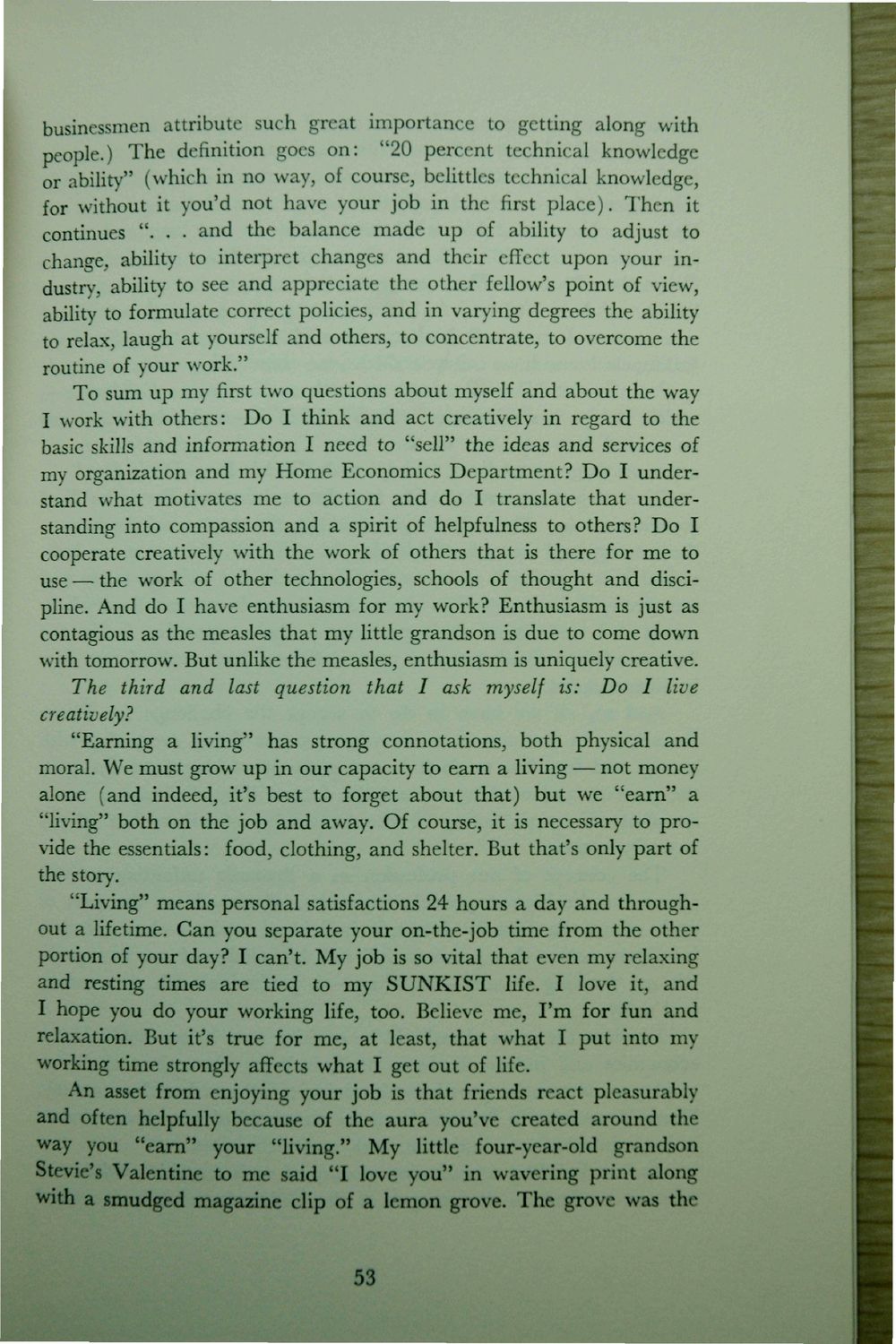| |
| |
Caption: Dedication - Home Economics - Challenge of Home Economics
This is a reduced-resolution page image for fast online browsing.

EXTRACTED TEXT FROM PAGE:
businessmen attribute such great importance to getting along with people.) The definition goes on: "20 percent technical knowledge or ability" (which in no way, of course, belittles technical knowledge, for without it you'd not have your job in the first place). Then it continues ". . . and the balance made up of ability to adjust to change, ability to interpret changes and their effect upon your industry, ability to see and appreciate the other fellow's point of view, ability to formulate correct policies, and in varying degrees the ability to relax, laugh at yourself and others, to concentrate, to overcome the routine of your work." To sum up my first two questions about myself and about the way I work with others: Do I think and act creatively in regard to the basic skills and information I need to "sell" the ideas and services of my organization and my Home Economics Department? Do I understand what motivates me to action and do I translate that understanding into compassion and a spirit of helpfulness to others? Do I cooperate creatively with the work of others that is there for me to use — the work of other technologies, schools of thought and discipline. And do I have enthusiasm for my work? Enthusiasm is just as contagious as the measles that my little grandson is due to come down with tomorrow. But unlike the measles, enthusiasm is uniquely creative. The third and last question that I ask myself is: Do I live creatively? "Earning a living" has strong connotations, both physical and moral. We must grow up in our capacity to earn a living — not money alone (and indeed, it's best to forget about that) but we "earn" a "living" both on the job and away. Of course, it is necessary to provide the essentials: food, clothing, and shelter. But that's only part of the story. "Living" means personal satisfactions 24 hours a day and throughout a lifetime. Can you separate your on-the-job time from the other portion of your day? I can't. My job is so vital that even my relaxing and resting times are tied to my SUNKIST life. I love it, and I hope you do your working life, too. Believe me, I'm for fun and relaxation. But it's true for me, at least, that what I put into my working time strongly affects what I get out of life. An asset from enjoying your job is that friends react pleasurably and often helpfully because of the aura you've created around the way you "earn" your "living." My little four-year-old grandson Stevie's Valentine to me said "I love you" in wavering print along with a smudged magazine clip of a lemon grove. The grove was the 53
| |